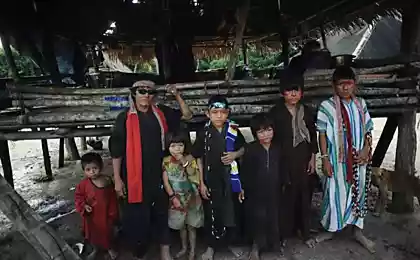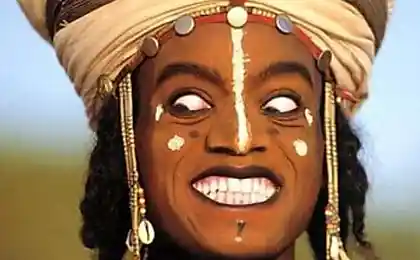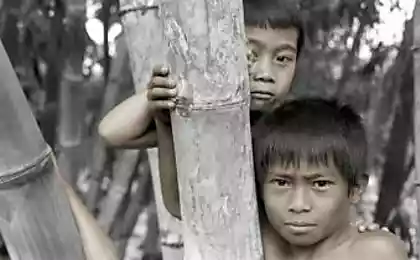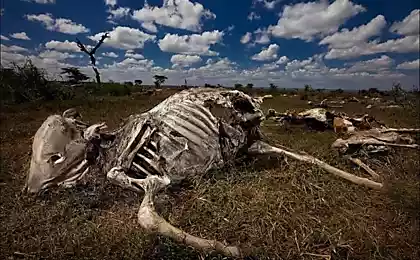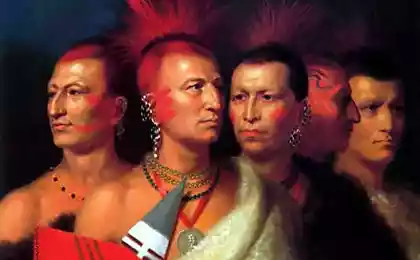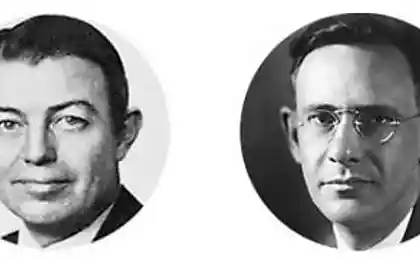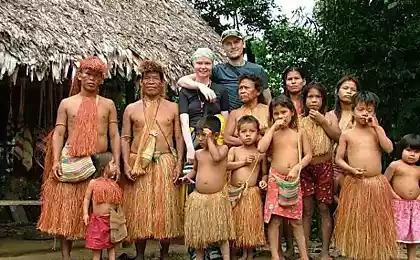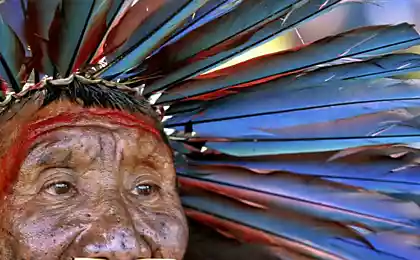1148
Riddle Fulani tribe (3 photos)
In West Africa, there are people who for centuries attracted the attention of scientists. This Fulani herdsmen. Where did the people on the continent with a light complexion, why are so many "civilized", where they have gathered knowledge, no one can say ...
Indeed, the Fulani in Africa seem to be aliens. Scientists suggest that the whole way of life, all their cultural values Fulani carried through contacts with highly developed civilizations, but with what it is not clear until now ...
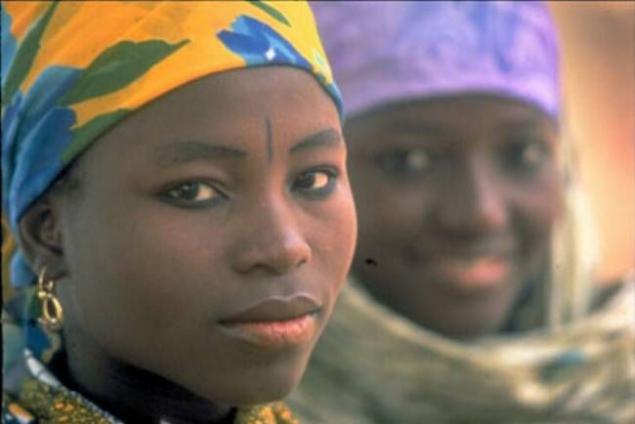
mysterious people
Aristocracy appearance, proud posture, become noble gestures in expression of feelings, a high level of spirituality: these people created thousands of stories, legends, epics, proverbs and sayings - all in their life is not like the neighbors. Language Fulani - Fula - considered the most promising of all the national language spoken in Africa.
Fulani, in fact, African trendsetters, they created the famous Phrygian cap, hat, bell, peaked straw hat - hats shepherds. Famous throughout Africa, and women's hair with a "cockscomb" of the thinnest braids, stretched on a special frame made of bamboo sticks.
As a confirmation of the theory of contact with highly Fulani peoples can be considered and their mysterious sacred book, which is called the Book of the legends of the pharaohs and the Book of the Egyptian magicians. Perhaps the existence of this book speaks of being "great-Fulani" in the Mediterranean-Middle East zone, where they met with the tradition of the holy books? In general, more and more scientists agree that in ancient times in the north-eastern Africa, lived a homogeneous population, which scientists call "Mediterranean race contact».
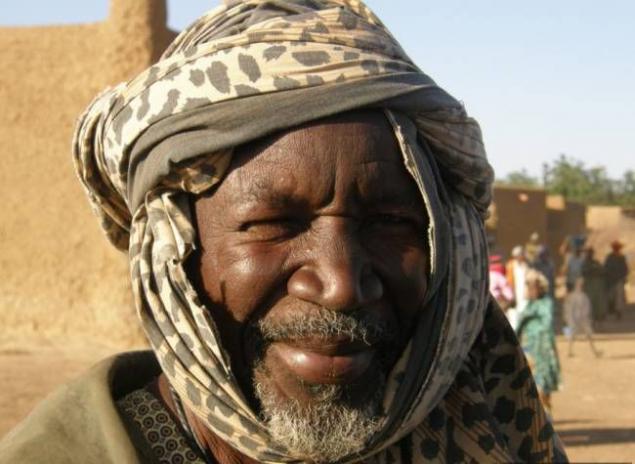
Several hundred scientists can not agree on the origin of the Fulani. The intrigue in this puzzle involved in the external differences from the Fulani neighbors Negroid: Fulani tall, with reddish skin color and delicate features. Extraordinarily beautiful women are attracted to men figurines from the highest echelons of power almost all African states. Fulani are called descendants of the Roma, the sons of Roman legionaries lost in the Sahara, one of the tribes of Israel, and the famous linguist Meynhof generally considered Fulani Hamit, who came from Asia.
Legends times Islamization say about the origin of the Fulani Arabs who to turn local pagans to Islam, married their women. The famous French scientist Maurice Delafos considered them descendants of foods referred to in the Bible. They, along with the boom-sosami invaded Egypt and settled in Cyrenaica. In the IV BC. e. their composition joined Jews expelled from Egypt by Ptolemy I Soter. Part of this ethnic group went to Morocco, and the other - within the current Mauritania, where in the III century founded the State Ghana. It is on the territory of this African state, and the first time we meet with the Fulani.
Three centuries Fulani took to win a dominant position among the local people and to create in these areas their states: Denianke - in Futa Toro and Diallube - near the town of Masina.
Creating a state
Fulani were able to create such powerful states that only one mention of the empire forced their neighbors tremble! Even the Europeans have the time pass them by. What was the impetus for such an unprecedented civilizational leap? Firstly, it is a genetic predisposition: Fulani, most likely, in ancient times was one of the highly developed societies; secondly - their privileged economic situation, associated with cattle.
On the role of livestock in the lives of the people speak eloquently of their proverbs: "Scott is superior to all, he was even more important than the father and mother", "If cattle die, die, and Fulani».
Fulani with awe about their herds, they really know how to deal with animals, breed them and take care. Scott - a major achievement and the basis for the existence of Fulani. In exchange for the products of Fulani cattle farming products obtained from neighboring peoples. In exceptional cases, when you need money, go on sale Fulani cattle, but are sold, as a rule, sick, and old animals.
A huge role in the lives of the African people played Islam. He became a powerful catalyst in speeding up the social, political and economic processes in the life of Fulani. Apparently, the people had to have some guidance in life, but Islam is a very good job with this task: the Qur'an teaches us how to behave in all circumstances. Fulani, incidentally, an Arab traveler named "true children of God," they are none other people that made this religion differ a great strictness in the performance of rites. Islam contributed to political and ideological unification of the people. Thanks to him, Fulani in a historically short period of time achieved tremendous results.
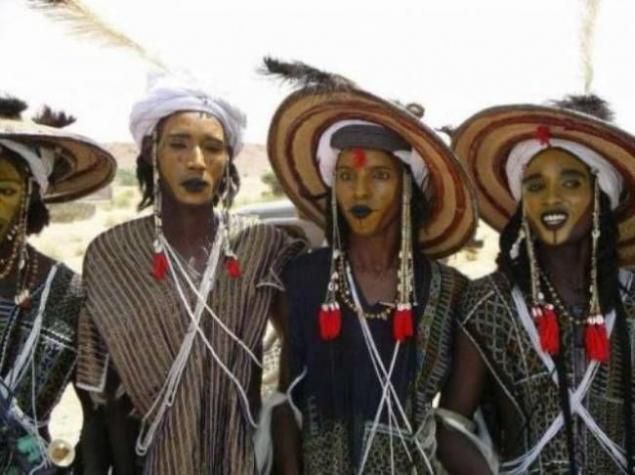
The burden of revolutions
XVIII century was very important in the life of the people, it was a period of prosperity. As a result of the revolution in 1725 in the Fouta Djallon was cos: given the feudal and military state, consisting of the provinces under the control of the Imam-Fulani. Further, in the Fouta Toro was created like state, which again led the representative of the Fulani. At the beginning of the XIX century it is already in Masina, Sheikh Amadou Barry created in the Macina Fulani kingdom, which existed thanks to competent management of all the XIX century.
In 1776, all countries in the mountainous region of Fouta Jala-on, Futa Toro and the Senegal River Valley have been combined into one Imamate. At its head stood the leader of one of the Fulani tribes of Abd al-Qadir. The country was divided into provinces, called E Side. At the head of each of them were Fulani. There Supreme Council, who led all the governors in the provinces. The social structure was patriarchal-feudal character. The vassals of the rulers of foot-dzhallonskogo states were many "kingdoms" of the peoples of the Gulf of Guinea.
Socially-foot dzhallonskoe society consisted of two main groups: the ruling elite of the Fulani and serfs, semi-feudal of the indigenous people of these territories.
In a state of dependence, and are members of the artisan castes: tanners, weavers, dyers, potters, blacksmiths, griots (musicians, singers, storytellers). The credit for the creation of a vast Caliphate with its capital in Sokoto, fulbskoy powerful empire belongs fulbskomu Muslim preacher Osman.
During the existence of the empire throughout the territory has been cleaned up. After the death of Osman Empire began to rule his son Muhammad Bello. With him on the basis of the former independent city-states were created by Emirates.
Each of the emirs had before military squads levied taxes from the population, and was obliged to be with his troops at the first request of the Sultan. At the end of the XIX century Sokoto was captured by Britain and became part of the British colony of Nigeria.
So, as a result of internecine wars of conquest and the Europeans lost the powerful empire created by Fulani. Now it is in areas of the former powerful states have a greater concentration of the nation.
French colonial policy later even suspended the development of written language Fulani - Fula, as well as other local languages. But Fulani, unlike other nations, are very reluctant to come into contact with the French, so French officials even had to learn Fula, to somehow communicate with the local people.
Indeed, the Fulani in Africa seem to be aliens. Scientists suggest that the whole way of life, all their cultural values Fulani carried through contacts with highly developed civilizations, but with what it is not clear until now ...

mysterious people
Aristocracy appearance, proud posture, become noble gestures in expression of feelings, a high level of spirituality: these people created thousands of stories, legends, epics, proverbs and sayings - all in their life is not like the neighbors. Language Fulani - Fula - considered the most promising of all the national language spoken in Africa.
Fulani, in fact, African trendsetters, they created the famous Phrygian cap, hat, bell, peaked straw hat - hats shepherds. Famous throughout Africa, and women's hair with a "cockscomb" of the thinnest braids, stretched on a special frame made of bamboo sticks.
As a confirmation of the theory of contact with highly Fulani peoples can be considered and their mysterious sacred book, which is called the Book of the legends of the pharaohs and the Book of the Egyptian magicians. Perhaps the existence of this book speaks of being "great-Fulani" in the Mediterranean-Middle East zone, where they met with the tradition of the holy books? In general, more and more scientists agree that in ancient times in the north-eastern Africa, lived a homogeneous population, which scientists call "Mediterranean race contact».

Several hundred scientists can not agree on the origin of the Fulani. The intrigue in this puzzle involved in the external differences from the Fulani neighbors Negroid: Fulani tall, with reddish skin color and delicate features. Extraordinarily beautiful women are attracted to men figurines from the highest echelons of power almost all African states. Fulani are called descendants of the Roma, the sons of Roman legionaries lost in the Sahara, one of the tribes of Israel, and the famous linguist Meynhof generally considered Fulani Hamit, who came from Asia.
Legends times Islamization say about the origin of the Fulani Arabs who to turn local pagans to Islam, married their women. The famous French scientist Maurice Delafos considered them descendants of foods referred to in the Bible. They, along with the boom-sosami invaded Egypt and settled in Cyrenaica. In the IV BC. e. their composition joined Jews expelled from Egypt by Ptolemy I Soter. Part of this ethnic group went to Morocco, and the other - within the current Mauritania, where in the III century founded the State Ghana. It is on the territory of this African state, and the first time we meet with the Fulani.
Three centuries Fulani took to win a dominant position among the local people and to create in these areas their states: Denianke - in Futa Toro and Diallube - near the town of Masina.
Creating a state
Fulani were able to create such powerful states that only one mention of the empire forced their neighbors tremble! Even the Europeans have the time pass them by. What was the impetus for such an unprecedented civilizational leap? Firstly, it is a genetic predisposition: Fulani, most likely, in ancient times was one of the highly developed societies; secondly - their privileged economic situation, associated with cattle.
On the role of livestock in the lives of the people speak eloquently of their proverbs: "Scott is superior to all, he was even more important than the father and mother", "If cattle die, die, and Fulani».
Fulani with awe about their herds, they really know how to deal with animals, breed them and take care. Scott - a major achievement and the basis for the existence of Fulani. In exchange for the products of Fulani cattle farming products obtained from neighboring peoples. In exceptional cases, when you need money, go on sale Fulani cattle, but are sold, as a rule, sick, and old animals.
A huge role in the lives of the African people played Islam. He became a powerful catalyst in speeding up the social, political and economic processes in the life of Fulani. Apparently, the people had to have some guidance in life, but Islam is a very good job with this task: the Qur'an teaches us how to behave in all circumstances. Fulani, incidentally, an Arab traveler named "true children of God," they are none other people that made this religion differ a great strictness in the performance of rites. Islam contributed to political and ideological unification of the people. Thanks to him, Fulani in a historically short period of time achieved tremendous results.

The burden of revolutions
XVIII century was very important in the life of the people, it was a period of prosperity. As a result of the revolution in 1725 in the Fouta Djallon was cos: given the feudal and military state, consisting of the provinces under the control of the Imam-Fulani. Further, in the Fouta Toro was created like state, which again led the representative of the Fulani. At the beginning of the XIX century it is already in Masina, Sheikh Amadou Barry created in the Macina Fulani kingdom, which existed thanks to competent management of all the XIX century.
In 1776, all countries in the mountainous region of Fouta Jala-on, Futa Toro and the Senegal River Valley have been combined into one Imamate. At its head stood the leader of one of the Fulani tribes of Abd al-Qadir. The country was divided into provinces, called E Side. At the head of each of them were Fulani. There Supreme Council, who led all the governors in the provinces. The social structure was patriarchal-feudal character. The vassals of the rulers of foot-dzhallonskogo states were many "kingdoms" of the peoples of the Gulf of Guinea.
Socially-foot dzhallonskoe society consisted of two main groups: the ruling elite of the Fulani and serfs, semi-feudal of the indigenous people of these territories.
In a state of dependence, and are members of the artisan castes: tanners, weavers, dyers, potters, blacksmiths, griots (musicians, singers, storytellers). The credit for the creation of a vast Caliphate with its capital in Sokoto, fulbskoy powerful empire belongs fulbskomu Muslim preacher Osman.
During the existence of the empire throughout the territory has been cleaned up. After the death of Osman Empire began to rule his son Muhammad Bello. With him on the basis of the former independent city-states were created by Emirates.
Each of the emirs had before military squads levied taxes from the population, and was obliged to be with his troops at the first request of the Sultan. At the end of the XIX century Sokoto was captured by Britain and became part of the British colony of Nigeria.
So, as a result of internecine wars of conquest and the Europeans lost the powerful empire created by Fulani. Now it is in areas of the former powerful states have a greater concentration of the nation.
French colonial policy later even suspended the development of written language Fulani - Fula, as well as other local languages. But Fulani, unlike other nations, are very reluctant to come into contact with the French, so French officials even had to learn Fula, to somehow communicate with the local people.

